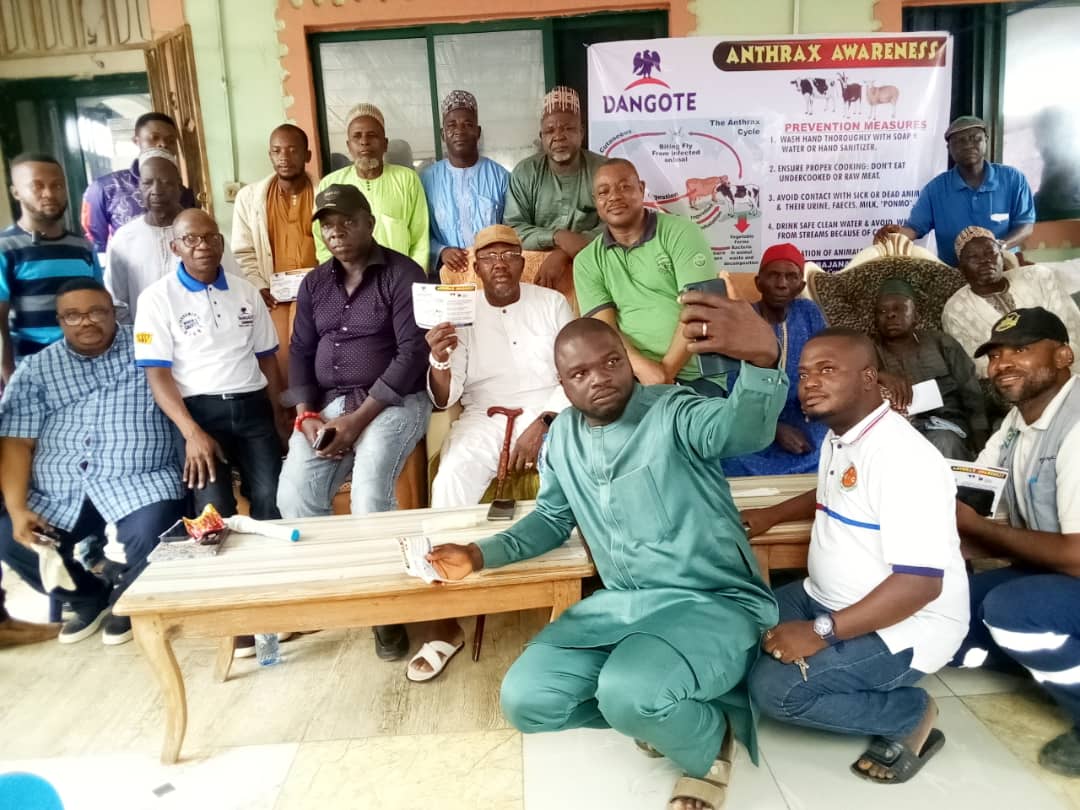By Dare Akogun
As part of its support to government efforts in preventing the spread of anthrax and other diseases in the country Dangote Cement Plc has commenced an awareness and sensitisation campaign in the four catchment communities of Dangote Cement Plc.
The communities are: Oyo, Iwaa, Apata and Obajana.
It would be recalled that the Federal Government in July confirmed the first case of anthrax in Nigeria, stating that the disease was detected in a farm in Niger State.
Similarly, in June, the Federal Government alerted the public to the outbreak of anthrax disease in some neighboring countries within the West Africa sub-region and advised Nigerians to desist from the consumption of hides (ponmo).
Since then, some States have opted for vaccination of their livestock against the disease.
Welcoming participants to the event at Obajana, the General Manager, Community Affairs/Special Duties of Dangote Cement Plc, Obajana Plant, Mr. Ademola Adeyemi, noted that this singular event demonstrates the concept of good neighborliness and information sharing for the betterment of all.
He enjoined the attendees to endeavor to share the information until it gets to everybody in the Community
Speaking at the event Representative of Dangote Cement Plc, Dr. Akinola Adewale said anthrax is caused by spore-forming bacterium Bacillius anthracis, which primarily affect animals such as cattle, sheep, and goat.
Dr. Adewale said the disease can also infect human beings who come in direct contact with infected animals, or contaminated animal products such as hides, wool, and meat.
He said one of the ways for identifying infected animals is that upon death, blood continues to gush forth from the animals’ anus, ears, and mouth.
Speaking, a member of the medical team, Dr Olufemi Adebayo, advised that sick animals be quarantined, and called on livestock owners to report suspicious illness or death.
Responding, the Bajana of Obajana, Oba (Dr.) Idowu Isenibi urged the meat sellers and butchers to take the warning seriously to save the lives of their livestock and that of humans.
The program was well attended by representatives of butchers and meat sellers, as well as different ethnic groups within and around Obajana communities.

